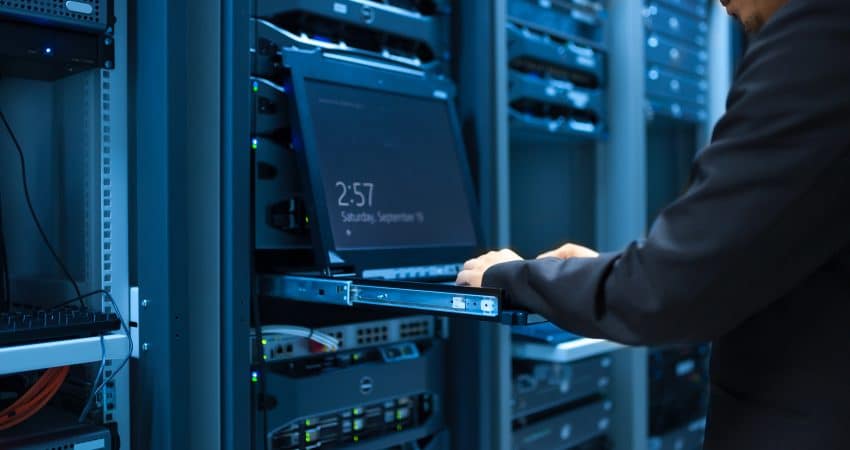
Introduction
In the healthcare industry, safeguarding patient information is not just a best practice; it is a legal requirement. The Health Insurance Portability and Accountability Act (HIPAA) establishes national standards for the protection of health information, ensuring that healthcare providers implement adequate security measures. As technology advances and the reliance on electronic health records (EHRs) increases, the need for effective IT security becomes paramount. Central to achieving HIPAA compliance is the role of Network Management Service, which help healthcare organizations manage their IT infrastructure securely. This article delves into the essentials of HIPAA compliance, the significance of IT security, and how network management services can assist healthcare providers in meeting these critical requirements.
Understanding HIPAA Compliance
1. What is HIPAA?
HIPAA is a federal law enacted in 1996 aimed at protecting sensitive patient health information from being disclosed without the patient’s consent or knowledge. The act includes provisions for privacy, security, and breach notification, making it essential for healthcare providers to understand and comply with its regulations.
2. Key Components of HIPAA
HIPAA compliance involves several key components:
- Privacy Rule: Establishes standards for the protection of health information and grants patients rights over their health information.
- Security Rule: Outlines the safeguards that healthcare organizations must implement to protect electronic protected health information (ePHI).
- Breach Notification Rule: Requires healthcare providers to notify patients and the Department of Health and Human Services (HHS) in the event of a data breach.
3. Importance of HIPAA Compliance
Compliance with HIPAA is crucial for several reasons:
- Legal Obligations: Non-compliance can lead to severe penalties, including fines and legal actions.
- Patient Trust: Maintaining compliance fosters trust between healthcare providers and patients, as it demonstrates a commitment to protecting sensitive information.
- Operational Integrity: Implementing security measures to comply with HIPAA can lead to improved operational efficiency and data management.
The Role of IT Security in Healthcare
1. Protecting Sensitive Information
As healthcare providers increasingly rely on digital solutions, protecting sensitive patient information from unauthorized access becomes critical. Effective IT security measures help mitigate the risk of data breaches and cyberattacks, which can have far-reaching consequences.
2. Common Cyber Threats
Healthcare organizations face various cyber threats, including:
- Ransomware: Malware that encrypts data, rendering it inaccessible until a ransom is paid.
- Phishing: Deceptive emails that trick employees into revealing sensitive credentials or information.
- Data Breaches: Unauthorized access to patient records, often resulting in identity theft and fraud.
3. Importance of Robust IT Security Measures
Implementing robust IT security measures is essential for:
- Compliance: Meeting HIPAA requirements and avoiding penalties.
- Operational Continuity: Ensuring that healthcare services remain uninterrupted even in the face of cyber threats.
- Patient Safety: Protecting patient data is vital for maintaining trust and ensuring quality care.
How Network Management Services Support HIPAA Compliance
1. Continuous Monitoring
Network Management Service provide continuous monitoring of network performance and security. This proactive approach allows healthcare organizations to detect and address potential vulnerabilities before they can be exploited. Continuous monitoring also helps in maintaining an audit trail, which is essential for compliance.
2. Security Protocol Implementation
Network management services assist in implementing essential security protocols, such as:
- Firewalls: To create barriers against unauthorized access.
- Intrusion Detection Systems (IDS): To monitor network traffic for suspicious activity.
- Encryption: To protect sensitive data both in transit and at rest.
3. Risk Assessment and Management
Network management services conduct regular risk assessments to identify vulnerabilities within the IT infrastructure. By understanding potential risks, healthcare providers can take appropriate measures to mitigate them, ensuring compliance with HIPAA guidelines.
4. Incident Response Planning
In the event of a security incident, having a well-defined incident response plan is crucial. Network management services help healthcare organizations develop and test these plans, ensuring a swift and coordinated response to data breaches or cyberattacks.
5. Employee Training and Awareness error
is often a significant factor in data breaches. Network management services can facilitate training programs for employees, educating them about best practices for data security, recognizing phishing attempts, and understanding the importance of HIPAA compliance.
Best Practices for HIPAA Compliance and IT Security
1. Conduct Regular Audits
Regular audits of IT systems and security measures are essential for maintaining compliance with HIPAA. These audits should assess the effectiveness of existing security protocols and identify areas for improvement.
2. Maintain Documentation
Keeping thorough documentation of policies, procedures, and security measures is vital for compliance. This documentation can be invaluable during audits and helps ensure that all staff members are aware of their responsibilities regarding patient data protection.
3. Use Secure Communication Channels
When sharing patient information, it is crucial to use secure communication channels. This includes encrypted email services and secure messaging platforms that comply with HIPAA regulations.
4. Implement Access Controls
Establishing strict access controls ensures that only authorized personnel can access sensitive patient information. Role-based access controls can help limit exposure to only those who need it to perform their job functions.
5. Regularly Update Security Measures
Cyber threats are constantly evolving, and so should security measures. Regularly updating software, firewalls, and other security tools is essential to protect against emerging threats.
Conclusion
HIPAA compliance and IT security are critical aspects of healthcare operations that cannot be overlooked. As healthcare organizations increasingly rely on digital solutions, implementing robust security measures becomes essential to protect sensitive patient data. Network Management Service play a vital role in supporting these efforts, ensuring continuous monitoring, risk management, and compliance with HIPAA regulations. By prioritizing IT security, healthcare providers can enhance patient trust, maintain operational integrity, and safeguard their organizations against the growing threat of cyberattacks.















